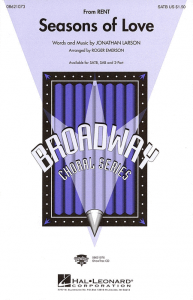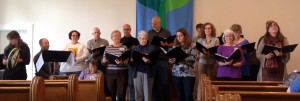Con Text: Poetry and Music
- Marlene
- Blog, choir, Uncategorized
- 1 Comment
Con Text: Poetry and Music
Context
What makes vocal music different from instrumental music? Of course there are obvious differences like the lack of fingerings or bow marks. But the most profound difference is that vocal music has words. Singers are interpreters of text.
Vocalists breathe with the phrases of poetry. We must know what the important words are to highlight them musically. And we must also understand the content to build to the climax and resolve the falling action.
As performers of poetry and prose, we have an intimate relationship with the subject matter. Rehearsing the song, the words implant in the mind. Later, the subconscious brings the words to our lips when we are cleaning the house or driving in the car.
Music is a memory device
The other night, I was listening to Bryan read poetry to the kids before bedtime. He began reading an Emily Dickinson poem. I joined in the recitation, the poem readily spilling out, though I had no idea that I knew this poem. It is the text to “Hope,” one of the anthems our choir loves to sing. For the rest of the night, I couldn’t get the words and music out of my head. It’s strange how musical memory works – one little nudge brings back the whole thing in an instant.
Or consider too how you know your ABCs. To this day, I still can’t alphabetize files without hearing the Alphabet Song in my head. It’s so much harder to recite those 26 letters minus the musical cues.
The blessing of practice
This week, my church choir is singing “Seasons of Love.” I can tell you there are “five hundred twenty-five thousand, six hundred minutes” in a year. More profound questions lurk behind the text. What would it mean to celebrate and remember every single moment? If we measured in love, how much would there be?
It is a gift that vocalists have to think about the text. We, perhaps more than the audience, benefit from the profound mysteries revealed in the poetry. We have time, through rehearsal, to take a deep dive. Vocalists have the unique pleasure of understanding text painting (the composer’s use of melodic and harmonic devices to color words with a particular emotion.) The music is in our bodies, goes through our bodies, resonates with our bodies. It’s physical, emotional, intellectual work.
I am reminded of Jason Robert Brown’s song “The Music of Heaven.”
“I come with my armor in place,
Emotions in check.
And thinking I’m smarter or just more realistic.
I sit with my frozen smile,
All the while reluctant to trust what I’m told,
Cynical, cold.Challenging music of heaven to open a crack in my chest.
And let something glorious in.
Music of heaven should puncture me, suddenly blessed,
Let the music begin…And I sit there with dry eyes and cold hands
Judging and standing apart
Dry eyes and cold hands,
Waiting and wondering, when will it open my heart.
When will it open my heart?
When will I open my heart?”
Music breaks us open. It finds its ways into the smallest crack of our hearts. But it is also possible to stay indifferent, to not let that crack open up. Musicians have to turn toward the music, to be vulnerable, to open our hearts. That is the only way that we can have a truly meaningful performance. This is a gift we give the audience, of course, but I wonder if it isn’t something we do for ourselves too. Aren’t we changed by the study, rehearsals, and performance?
The voice within
I know I’m not alone in experiencing music that comes to me unbidden. When my grandfather died, the family was at his bedside. I don’t know where it came from, but the song “I’ll Fly Away” began in my head. I started humming it, then quietly sang the words. My sister joined in, then our mother. We opened a window. Singing with my family in that moment felt so right.
There have been other times of heartache that other songs have come to me, rolling in like a storm or like sunlight breaking through the clouds. Unexpected. Perfect. Songs like “All Will Be Well,” “Hallelujah” by Leonard Cohen, or “Something Told the Wild Geese.”
There seems to be a song in the jukebox of my head for every situation, every emotion. There are days when I feel like my life is one big musical. There’s something magical about the subconscious finding the right song for the moment.
A picture in my studio has this poem:
“An awe so quiet I don’t know when it began.
A gratitude had begun to sing in me.
Was there some moment dividing song from no song?
When does dewfall begin?
When does night fold its arms over our hearts to cherish them?
When is daybreak?” -Denise Levertov
What songs are playing in your head? If you turn up the volume and listen, is the song trying to tell you something, trying to open some crack in your heart?
A challenge to my choir and all vocalists
The church choir offers the perfect opportunity for spiritual growth through music.
When you are working on choir music, I challenge you to think about the lyrics. What do the words mean to you? Can you relate to that experience? How does the music help carry the message? As a performer, how can you help the audience feel and understand the text? And finally, I wonder if we can find ways to be more willing to receive the blessings of music.
I think Jason Robert Brown was onto something. “Let the music begin.”


1 comment